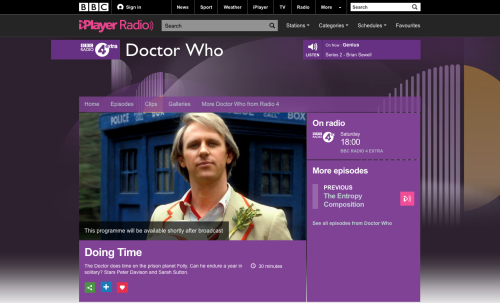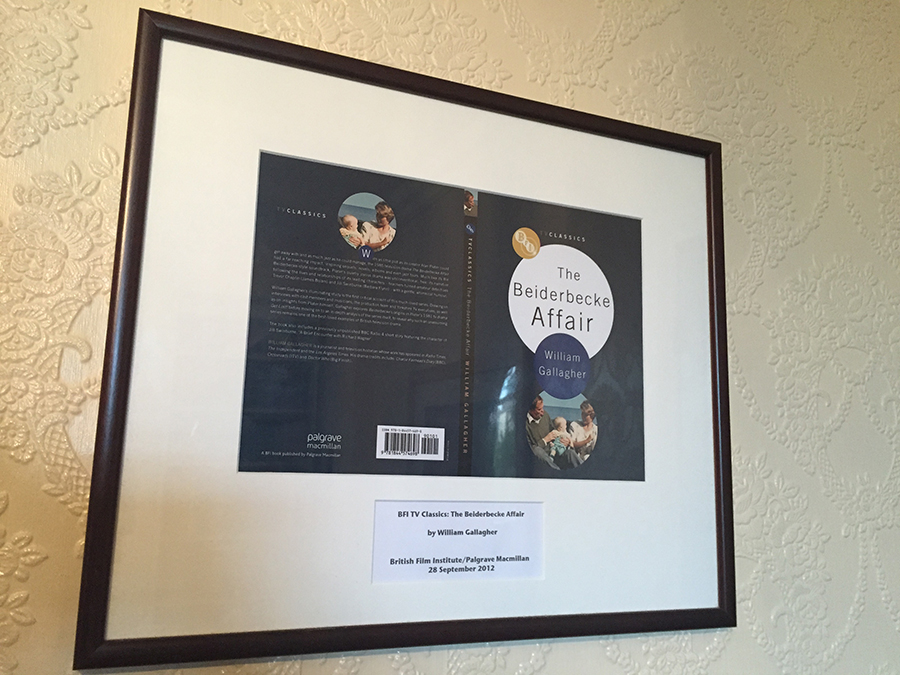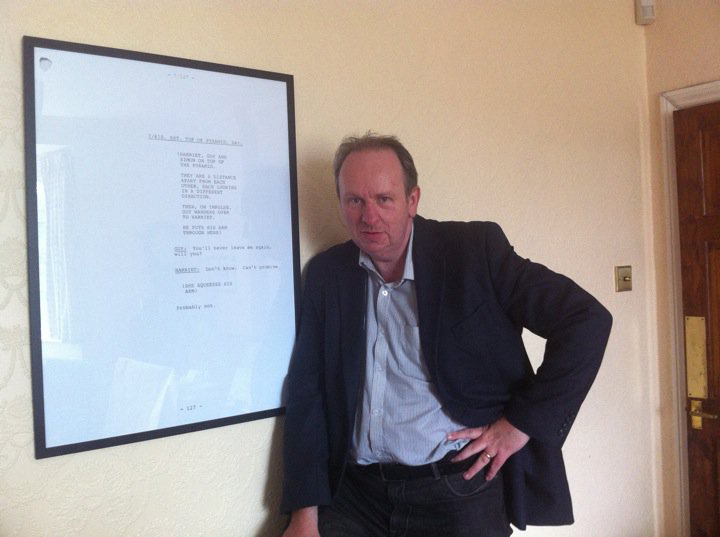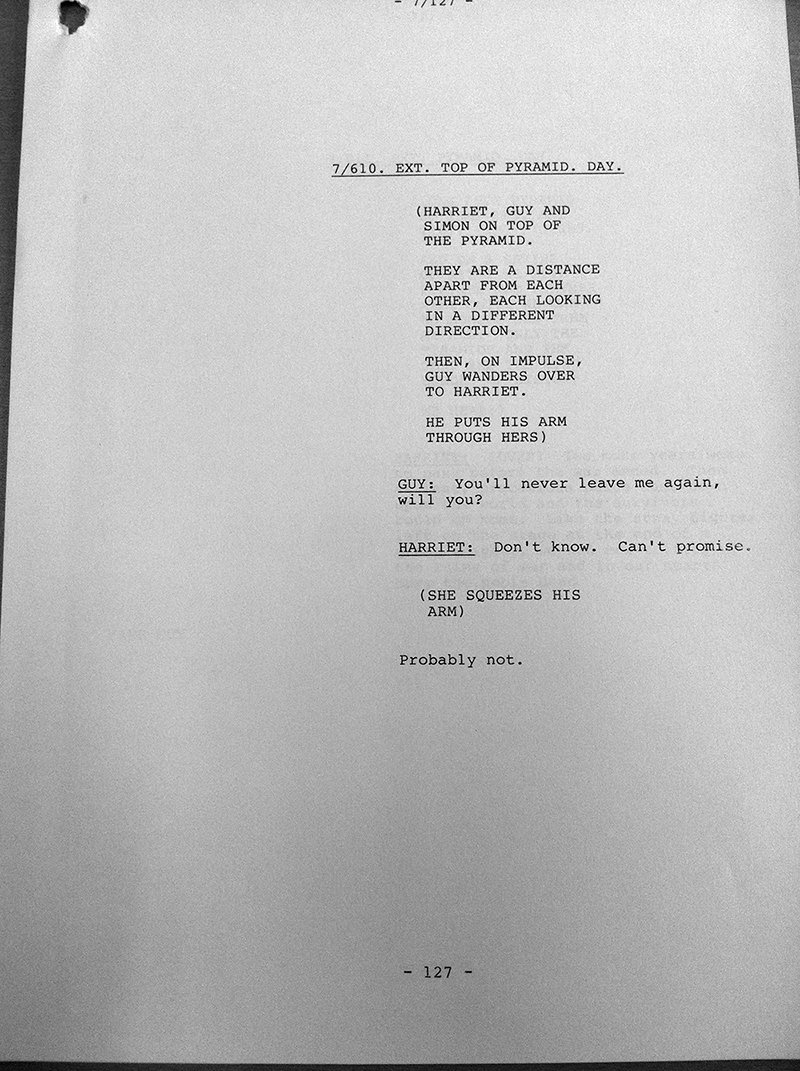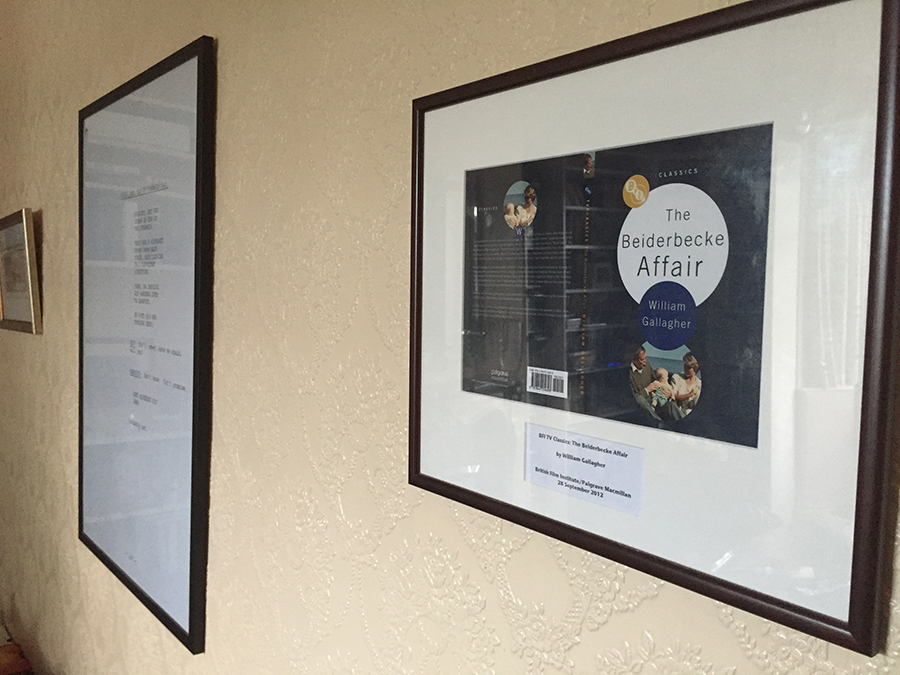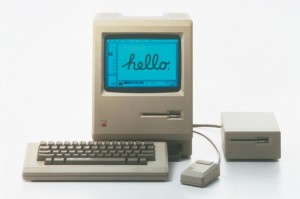There’s this thing I don’t have a word or a phrase for and I’d like to have, so I’m going to talk it over with you and see where we get. Also, it relates in part to a TV series that is presumably coming to the UK soon, so, you know, hang on in here, work with me on this.
I believe that writers can sense a good idea, somehow smell it. Taste it. So far, so obvious: we all recognise when something has potential. But we taste the full strength of that idea and – this is the key bit – we know just how great and effective and powerful it will be when we’ve worked out how to tell it to you.
I need an example. Try this. I’m working on a theatre project and after a very intense meeting about all sorts of things to it, I mentioned the ending. I don’t have the script, I haven’t written an outline. As it happens, I can recite to you the opening scenes but after that we have about ninety minutes of I-have-no-idea until we reach the last moments and specifically the last line.
Given who I was working with, I was happy to tell them everything and I needed to in order to get the job done, but I wouldn’t tell them that line. Alan Plater once wrote about a TV idea that he “knows the A and the Z and has a rough idea of B to about K”. I’ve got A, B and Z. So there I am, sitting in a pub, having discussed a project that I’ve worked on for at least 17 months and there is no chance you’ll see before 2016, and I will not tell the ending because I know it sounds weak without the beginning and middle.
Yet.
I struggled to say that I even had an ending because I literally struggled to say, to speak. I got choked up thinking of it. And I do every time. I can remember where I was the moment I first thought of it – I was on a bus going by the Birmingham Rep – and I choked.
I know I’ll get you.
I just have no idea how.
So assuming that I’m right, what is the right phrase for… tasting the idea, smelling the idea, sensing it? The ability to feel the full force of something that has no force until I’ve written everything that takes you on that specific trip from here to there.
I do know that it is tied in to what you reveal and when. (There’s that Suzanne Vega line from Pornographer’s Dream: “What she reveals / and what she conceals / is the key to our pleasure”)
There is a right moment for a story to bring you a particular key fact. Up until then it has to have other great ideas, it has to lead you down other lines that are equally good, equally interesting, but which you can pull away as you reveal the real… something.
The biggest TV drama surprise I can think of was a moment in Battlestar Galactica that I will not spoil even now. But if you saw the show, yes, I mean that one, that moment. And when it was airing, the creator Ronald D Moore used to do a podcast audio commentary: ten or more years on, I can remember him describing this scene as we watched. And he used the term “hide the card”. He kept repeating it – “hide the card, hide the card” – like it was a conjuring trick.
I suppose it was, I suppose all this is, but it feels cheapening to call it that.
What he specifically meant was that in this particular scene, we were set up to expect many, many things and it fulfilled them all. It seemed to tell us everything, if it had just done what we believed it was doing it would’ve been strong and effective but he didn’t reveal his hand until the last moment. I actually jumped out of my seat.
It was a shocking moment and the shock came as much from how brilliantly set up and misdirected we were as it is from what actually happened in that moment.
That’s the thing I think writers have. We know what that moment is going to feel like even when we haven’t set it up yet. Our job then is to set it up properly. Our difficulty is getting you to the point we sensed.
It is fracking hard. (I have got to watch that show again.)
And I think you can get it very easily, very badly wrong. This is why this is on my mind today, this is where the new TV show comes in.
It’s a comedy called A to Z – no connection with Alan’s comment – which is the first time I have ever tuned in to anything because of the cast. It’s a romcom, and I like romcoms a lot, this time starring Cristin Milioti. Also Andrew Lofland but I’d not heard of him. Milioti was remarkable in the final season of How I Met Your Mother which broke every storytelling sense I’ve got in how after eight years of never showing us the Mother of the title, made her the star of the ninth year. I think the writing of that was bold and supremely well done, I thought Milioti played the part terrifically, I was sorry it was the final season.
So her back in a new romcom, I gave it a go.
It’s not great. It’s also cancelled. It made A to about M. I’d have said that to you anyway, just as a gag, but it’s pretty much literally true too: each episode was named after a letter of the alphabet. The pilot was called “A is for Acquaintances”, for instance. Each week, a narrator would explain that “this television programme is the comprehensive account of their relationship… from A to Z.” She explains this a lot.
Quick setup. A stands for Andrew, who works at an online dating agency. Z is Zelda, which is the name you would only ever give a character if you really, really had to have her begin with that letter. No other reason possible.
We have no idea who the narrator is. Think of How I Met Your Mother’s narration by Old Ted, except that we don’t know who is speaking. I saw five episodes, I think, and we never knew, despite getting quite a lot of narration. I assumed that the narrator was just a device and a lazy one at that.
Is it hiding the card that actually yes, the narrator is a real character and we just haven’t been told yet?
No.
A draft script for the pilot episode of A to Z by Ben Queen is now online at Lee Thomson’s brilliant TV Scripts site and you can read it right now.
If you do, then the first line you read will be:
Our NARRATOR is female, in her 50s. Think Diane Keaton (or someone equally cool if that person exists)
Twenty-six pages later, Andrew has a folder of material about the online dating agency – here called Crush, changed in production to Wallflower – and:
He opens the file. Inside are press clippings about ‘Crush’ from its origins. We maybe see a glimpse of its founder JULIET MADDOX (who will turn out to be our NARRATOR).
Twenty-six pages. And over those twenty-six pages, our NARRATOR has twenty-nine speeches.
If you’re thinking that’s fine, it let us dangle before telling us, look at that direction again.
We maybe see a glimpse of its founder JULIET MADDOX (who will turn out to be our NARRATOR).
Nearly thirty pages and very nearly thirty speeches in, viewers do not learn who the narrator is. In the episode as aired, there is a file folder, he is carrying it, it does have newspaper clippings (about an online site? seriously?) but he doesn’t open it, it isn’t referred to, the whole exchange of dialogue about it is cut. The sole way to know that it’s about the narrator and who that will be is to read the script. I actually said aloud “Oh, okay” when I read that.
You need to hide the card, sure. But you have to have the card in play. Or you won’t get the audience to that great point you’ve smelled and tasted and sensed from the start. Maybe because they won’t stick with you that long, maybe because your show is cancelled before you get around to it.
